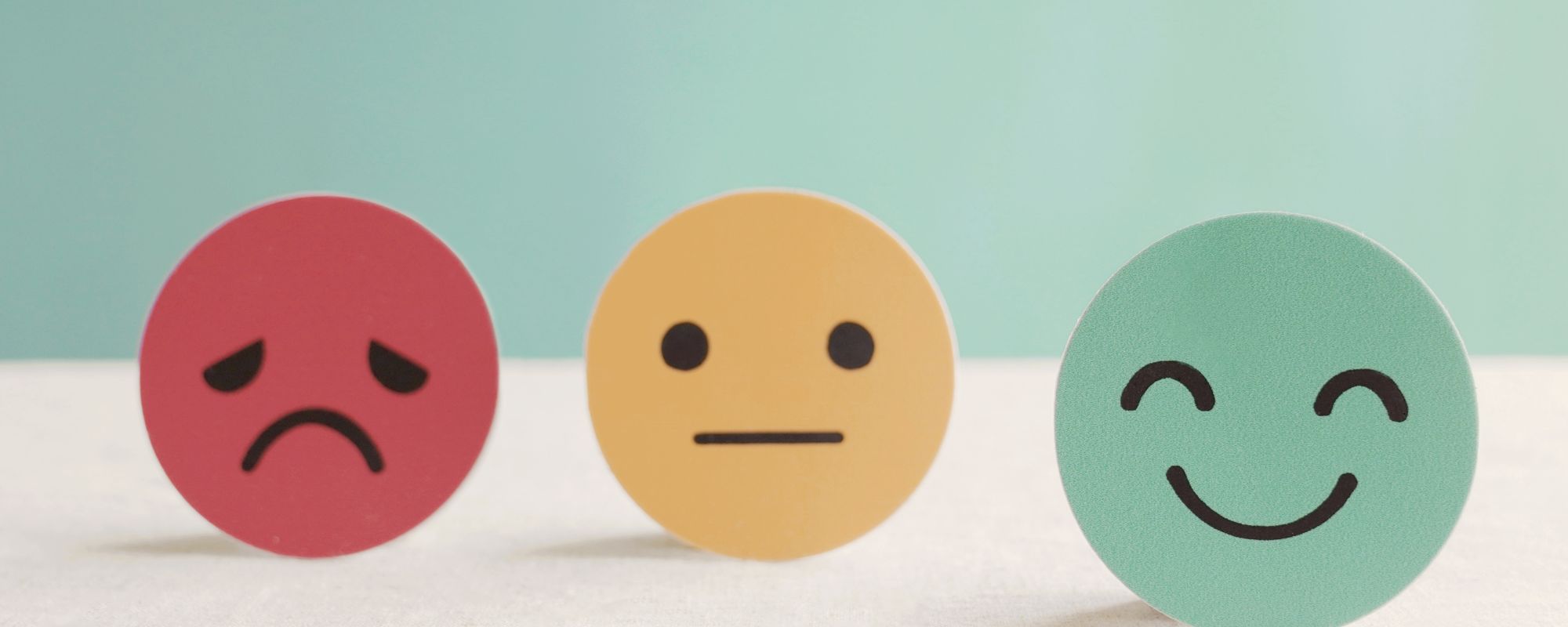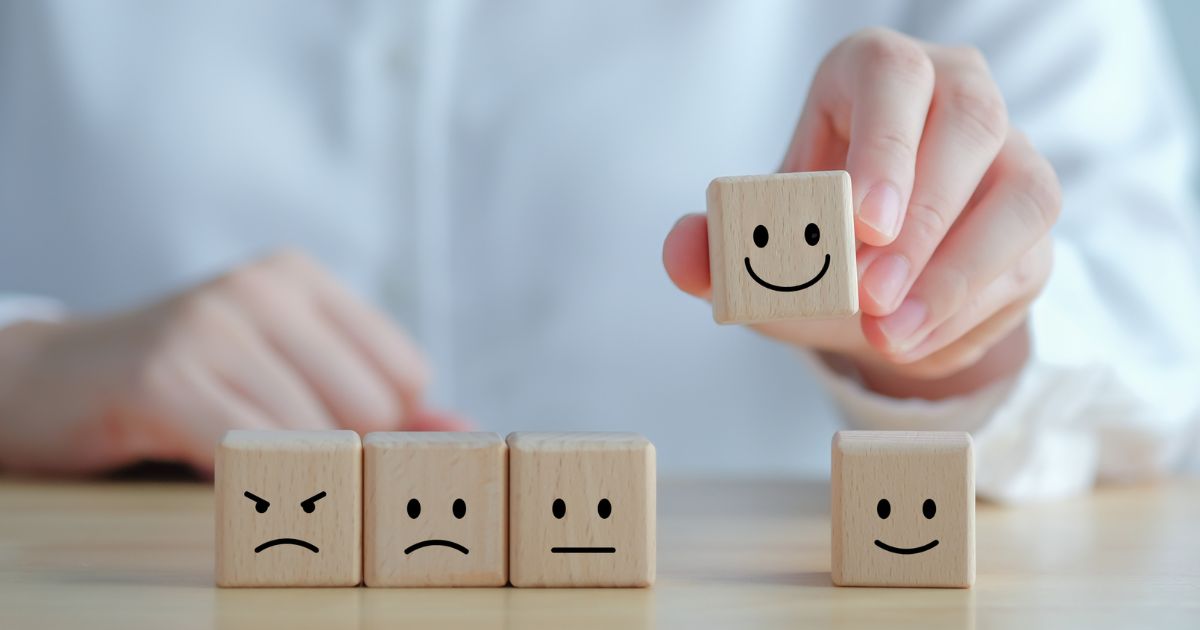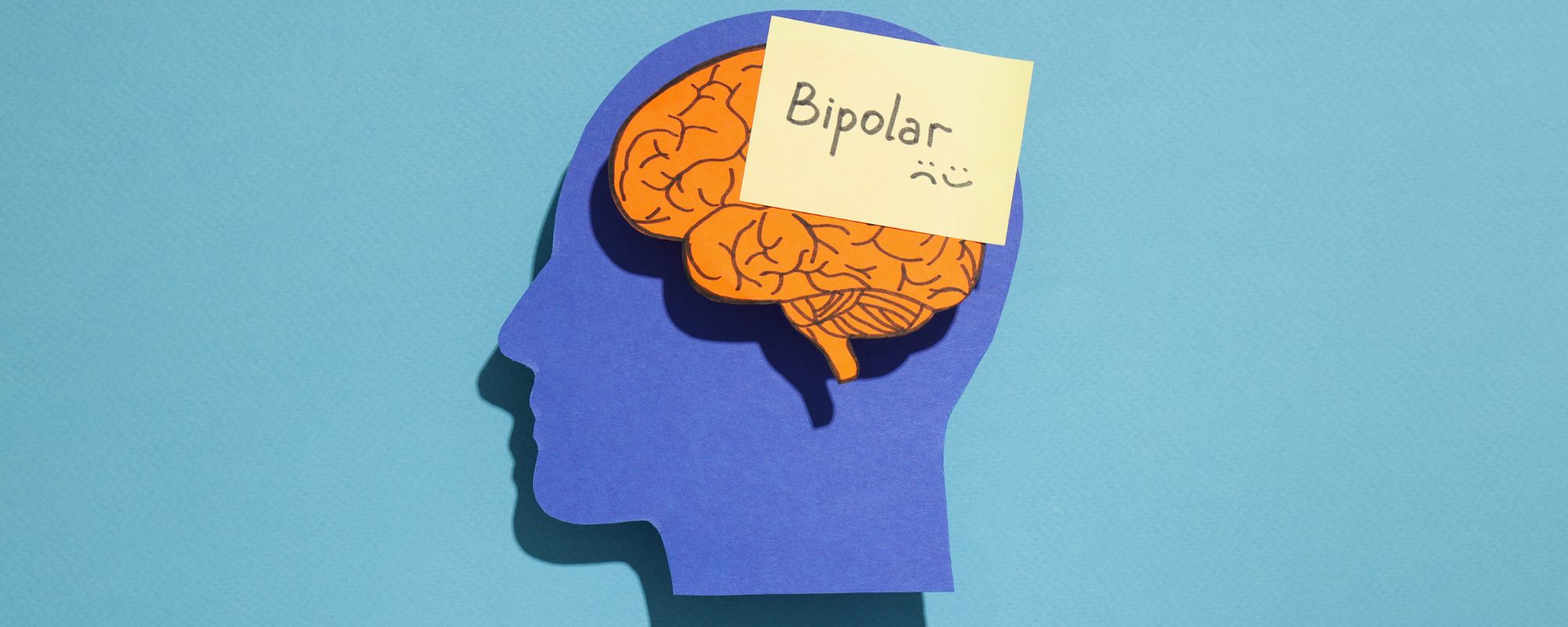In every way, good mental health shapes, forms and builds the foundation of your well-being. It influences what you think, how you feel and the way you act and navigate in the day-to-day.
Mental health issues that can diminish this well-being create a ripple effect in every aspect of your life, from your ability to maintain and sustain relationships, succeed in work or school or even manage basic functioning or self-care. One in five U.S. adults experience mental health issues — 20% of all people — and one in 20 people struggle with serious mental illness, according to the National Alliance on Mental Illness (NAMI).
“Having a mental illness can make it challenging to live everyday life and maintain recovery,” says NAMI. “Beyond the individual, these challenges ripple out through our families, our communities and our world.”
Mental health care, according to NAMI, matters — in the past few years, 47.2% and 65.4% of adults, respectively, received treatment for mental illness. For those who didn’t, it illustrates how the process of finding mental health treatment facilities that honor your story and offer genuine support is an important public health need, especially when you or someone you love may be showing the signs of a potential mental health disorder.
If you’ve decided it’s time to reach out for help, what should you look for in the right mental health recovery facility? What can you expect and what conditions do they treat? Keep reading to learn more.
What Are Mental Health Treatment Facilities?
Mental health recovery centers are special clinics where you can go to be treated for any type of mental health challenges or psychiatric disorders. Their layout is made up mainly of various comfortable spaces and rooms for attending talk therapy and mental health counseling, one-on-one, with a counselor, therapist, psychologist or psychiatrist.
Larger meeting-sized rooms are also part of a conventional mental health recovery facility, designed for group sessions with other people in recovery. In addition, there may be studio space for yoga, meditation, tai chi and other holistic activities.
Mental health treatment facilities share one thing in common: they’re built from the ground up as safe spaces for healthcare and healing, without judgment, focusing exclusively on mental health and employing clinicians trained specifically in treating mental health disorders with the care and compassion you deserve.
According to health policy organization KFF, most treatment facilities specialize in either mental or substance use independently, but about 15% offer both (including Aliya’s network of facilities). For the latter, treatment facilities provide medical access for drug and alcohol detox.
Looking for quality treatment for substance abuse and mental health that’s also affordable? Aliya Health Group's treatment facilities accept most major insurance providers. Get a free insurance benefits check now!
Check Your CoverageTypes of Mental Health Treatment Facilities
“Mental health treatment facilities vary in their settings and services,” notes KFF. “Some provide hospital inpatient care, involving overnight stays and medical monitoring, and others offer outpatient services where patients visit for treatment sessions but do not stay overnight.”
Here’s a closer look at the levels of care provided by behavioral health treatment centers:
Inpatient Mental Health Treatment Facilities
The terms “inpatient” and “outpatient” often get mixed up and misinterpreted. Inpatient means you stay “in” a mental health recovery facility, living onsite for a predetermined period of time according to your treatment plan and schedule. The most intensive and involved form of treatment, inpatient care enables you to commit to recovery full-time and devote your 24/7 focus to therapy.
But why is inpatient treatment this rigorous? Who is it designed for? Why do you need to live at a treatment center? You might be a candidate for inpatient mental health treatment if:
- You’re a danger to yourself (such as having suicidal thoughts or psychotic episodes) or others (you’ve threatened their safety) and need round-the-clock care or medication
- You’re unable to care for your basic needs, like hygiene or eating, or they impair your ability to function properly, like going to work or school
- You’ve received a dual diagnosis and need detox from substances along with mental health treatment
Most inpatient mental health recovery facility stays are relatively short-term, involving a combination of individual and group counseling for five hours a day, seven days a week, with the goal of stabilizing your acute symptoms before transitioning you to a less intensive level of care.
Outpatient Mental Health Treatment Facilities
In an outpatient treatment setting, you’re enabled to receive mental health counseling while continuing to live at home and tend to work, school and family obligations. It’s an effective, flexible middle ground allowing you to give enough time and bandwidth to recovery and your day-to-day life — a balance so important to meet for good mental health.
Outpatient care usually involves individual or group therapy about one to three times a week, and you’re able to go home from the mental health recovery facility when the day’s sessions are done. It’s generally suited for you if:
- You’ve completed an inpatient stay and no longer need the same level of intensive, 24/7 care
- Your symptoms are not severe enough to warrant inpatient treatment
- You’re able to maintain your daily responsibilities and functioning despite your symptoms
- You can’t take time away from work, school, parenting or other responsibilities
- You have a stable living environment and support system without any symptom triggers
One of the benefits of outpatient care is that there are several different choices available to fill the gap between inpatient and standard outpatient. Partial Hospitalization Programs (PHPs) are a form of outpatient treatment if you need an inpatient level of support but don’t require 24-hour supervision. Likewise, Intensive Outpatient Programs (IOPs) also call for therapy sessions several hours a day, multiple days a week while allowing you to live at home and maintain daily responsibilities.
Get confidential help from our addiction and mental health treatment facilities located across the United States. Call to join one of our quality programs today!
Speak With Our Admissions TeamWhat Can Mental Health Treatment Facilities Help With?
The therapists and counselors you’ll work with in mental health treatment are skilled in identifying and diagnosing various disorders, where every mental health condition can be helped and healed:
Depressive Disorders
We all feel sad and down sometimes — it’s all part of the ups and downs of life. But depression is more than that. It’s a serious mental health condition that affects more than 8%, or 21 million adults, each year, impacting the way you think, feel and function out in the world.
With depression, you may feel a lingering sense of despondency and hopelessness, and a longing desire to feel happy even though nothing brings pleasure anymore, even when spending time with the people and doing the activities that once brought you joy and purpose. Depression is known to exacerbate other medical conditions and is a leading cause of suicide in many people.
Anxiety Disorders
Forty million people struggle daily with different types of anxiety disorders — over 19% of the entire population, according to the Anxiety & Depression Association of America.
From generalized anxiety disorder to panic disorder to different types of specific phobias, severe, crippling anxiety goes beyond occasional worry and can interfere with all facets of life. Thankfully, they can be treated, and seeking it at behavioral health treatment centers can help transform your life through the power of therapy, helping you learn coping mechanisms and new skills to make anxiety manageable when it once overwhelmed.
Trauma and PTSD
Exposure to even a single traumatic event during one’s lifetime can lead to the development of a trauma disorder. Seventy percent of people will experience a traumatic moment and 5.6% will go on to develop PTSD, or Post-Traumatic Stress Disorder, according to the World Health Organization (WHO).
Imposing lasting effects on mental health, trauma disorders and PTSD can stem from physical or sexual abuse, surviving an accident or natural disaster, or being involved in wartime combat. “Someone experiences PTSD when they have symptoms re-experiencing the event, avoid reminders of the event and experience symptoms of heightened arousal that cause significant distress, and interfere with daily activities and family, social, school or working life,” says the WHO. At behavioral health treatment centers, trauma treatment includes therapies like Eye Movement Desensitization and Reprocessing (EMDR), cognitive processing therapy and brainspotting.
Personality Disorders
Disruptive, long-term patterns of thoughts, feelings, and behaviors that cause significant problems in relationships and functioning are germane to personality disorders, a set of 10 different mental health conditions that affect about 9% of people in the U.S.
Personality disorders like bipolar, borderline, paranoid, avoidant and narcissistic share many symptoms in common, where many sufferers struggle to regulate their emotions in everyday situations. Mental health counseling for personality disorders makes this a priority, where treatments like Dialectical Behavioral Therapy (DBT) help you understand the patterns in your thoughts, feelings and behaviors, and develop healthier ways of relating to yourself and others.
How Does Mental Health Treatment Work?
Mental health treatment unfolds in various ways at mental health treatment facilities:
Initial Mental Health Assessment
When you enter rehab or mental health treatment, the clinical staff needs to know more about you so they can tailor your treatment plan. The initial assessment makes this happen. It’s a confidential process where you might complete questionnaires about your symptoms and experiences, take part in a first meeting/interview with your therapist, and discuss your medical history, family background and your recovery goals. The assessment is confidential and helps shape, with your input, what mental health counseling will work best for you.
Individualized Treatment Plans
Once your assessment is complete, the clinical team collaborates with you to develop a tailored treatment plan. It’s here that a mental health condition diagnosis is made, and the right treatment plan is mapped out. Your therapist may recommend an inpatient plan with a mix of individual and group therapy, plus some holistic-based sessions and a gradual medication plan. Or your condition may call for outpatient therapy with an emphasis on group sessions with CBT once a week. Likewise, a treatment plan may include a tentative timeline where you’ll start on an IOP plan and segue into standard outpatient depending on your progress. Individualizing your mental health recovery action plan is so your care remains flexible and responsive if your needs evolved.
Evidence-Based Psychotherapy
Mental health counseling forms the core of treatment. It’s the place where you can tell your story, talk about how you feel and open up about how your mental health has affected your life. It’s a chance to be proactive about your mental health, an effort that says, “I want to change and take charge of my life.” When psychotherapy is “research-based,” it means it’s been proven effective through scientific research and in clinical settings. Aliya’s behavioral health treatment centers on various therapies meant to heal mental illness, from CBT to DBT, Acceptance and Commitment Therapy (ACT) and more.
Holistic Mental Health Treatment
Mental health isn’t only about the mind — it can affect every fiber of your being, from the physical to the emotional and spiritual. Holistic means “whole,” and it’s meant to address all these dimensions of mental health and wellness. Activities like yoga help to connect your body and mind to keep you grounded. So does mindfulness meditation, since it teaches how to be mindful in every waking moment of your thoughts and emotions — ideal when emotional dysregulation is symptomatic of a mental health disorder. Holistic therapies are complementary approaches working alongside traditional therapies as part of a comprehensive plan.
Psychiatric Medications
For many mental health conditions, medication can be an important part of treatment in addition to therapy. Mental health treatment facilities typically have psychiatrists or psychiatric nurse practitioners who can help you decide whether medication might help your condition. They’ll monitor your intake and make adjustments as needed while minimizing any side effects. These might include antidepressants, anti-anxiety medicines and mood stabilizers.
Professional Mental Health Counseling Near Me
Above all, look for a mental healthcare provider who not only specializes in individualized, specialized treatment for your needs — not through a one-size-fits-all approach — but one who approaches recovery with a compassionate clinical philosophy. We pride our 21 mental health recovery centers on this promise: to make mental health treatment a transformative experience that allows you to be the best version of yourself for the rest of your life. Remember that after treatment ends, we offer numerous aftercare options if you’d like to continue follow-up outpatient therapy or participate in group sessions or more.
We know you have questions about mental health treatment, and we’re here 24/7 to answer them. We’d love to hear from you, so contact us today.
- https://www.nami.org/about-mental-illness/mental-health-by-the-numbers/
- https://www.psychiatry.org/patients-families/warning-signs-of-mental-illness
- https://www.kff.org/mental-health/issue-brief/a-look-at-substance-use-and-mental-health-treatment-facilities-across-the-u-s/
- https://mhanational.org/conditions/depression/
- https://adaa.org/understanding-anxiety/facts-statistics
- https://www.who.int/news-room/fact-sheets/detail/post-traumatic-stress-disorder
- https://my.clevelandclinic.org/health/diseases/9636-personality-disorders-overview








